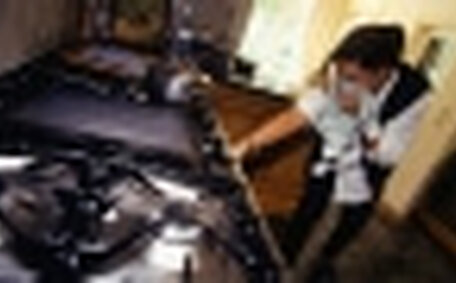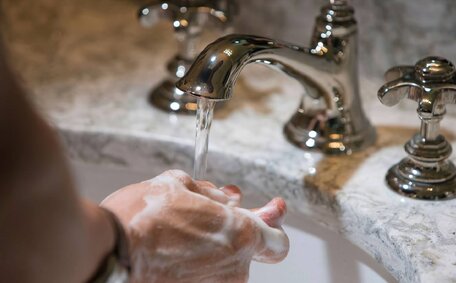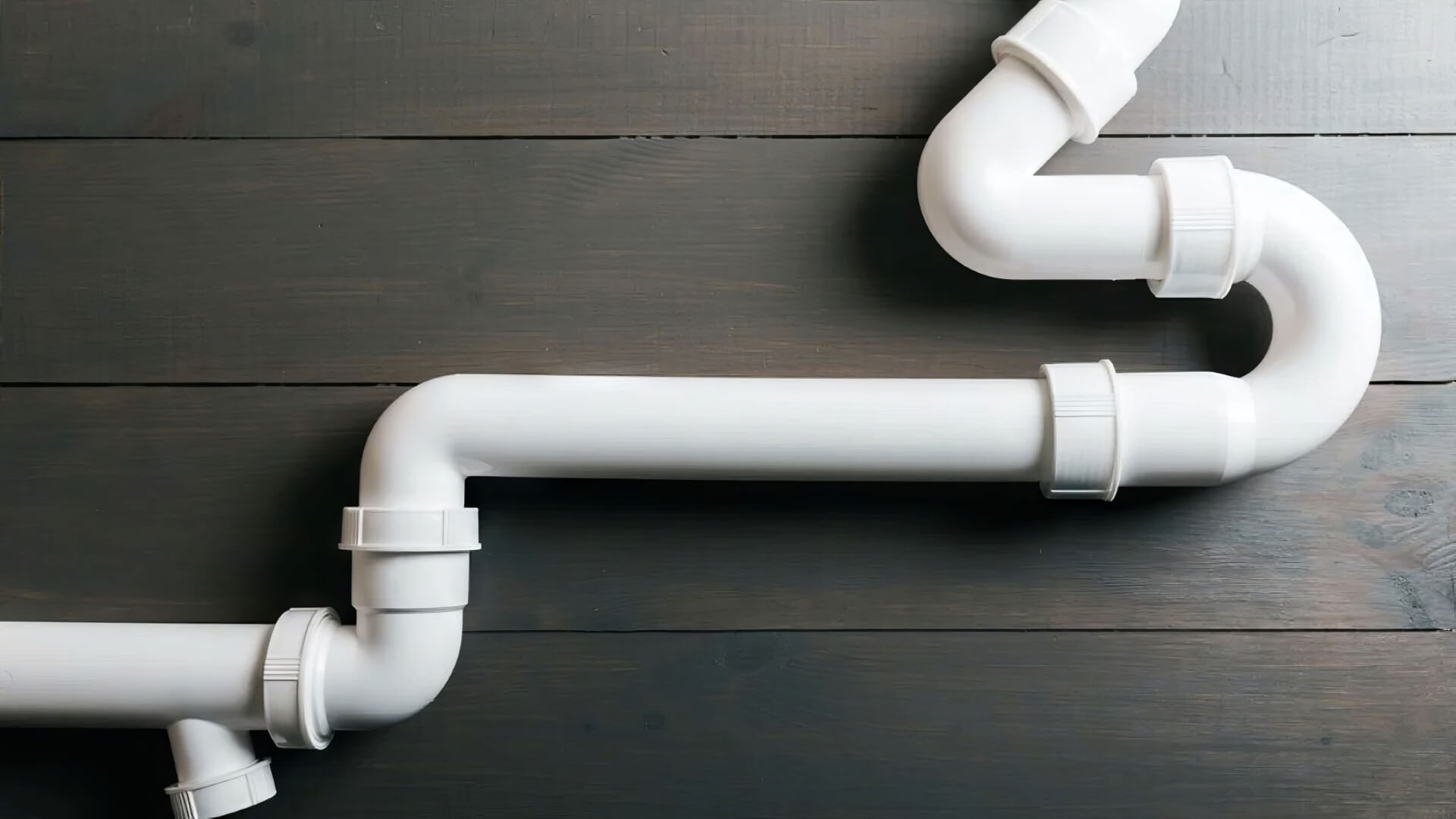How to Identify a Gas Leak in Your Home
A reliable gas leak detector is critical for identifying potential hazards in your home, such as the risks of explosion, fire, and carbon monoxide poisoning. This guide will detail how to spot gas leak signs and the procedures for locating them early on.
Distinctive Sulfur or Rotten Egg Smell
If you detect a sulphuric or rotten egg odour, it’s a clear indicator of a natural gas leak near your home’s gas appliances or pipes, requiring immediate attention.
This distinctive smell ensures there’s no mistaking it, simplifying the process for homeowners to detect any leak your residence could harbour, even though natural gas is naturally colourless and odourless. As natural gas is lighter than air, this is one of the most telltale signs of a gas leak that should not be ignored.
Unusual Hissing or Whistling Noises
If you hear an unusual hissing or high-pitched whistling sound near any gas appliances or pipes, this indicates a potential gas leak. If you hear an unusual hissing or high-pitched whistling sound near any gas appliances or pipes, this indicates a potential gas leak.
A pressure drop, resulting in high-pitched noises, can indicate gas escaping at points where the operating pressure has decreased. Strange noises from gas lines should be taken very seriously; contact a licensed gas specialist immediately.
Look and listen for any signs gas appliances, like your stove, might be leaking and meticulously check the gas meter, gas pipes and their respective joints for any irregularity. Remember, gas leaks might not make noise if they are in hidden areas where gas meters and other utilities are within walls or underground.
Checking Gas Appliances for Leaks
Routinely inspecting your appliances and connections is vital to detect potential gas leaks. Check the following key areas in your property for gas leaks:
- Gas stove burners and ovens
- Gas hot water systems
- Gas heaters
- Inspect rubber hoses connecting appliances
- Joints between copper tubing and pipes
Examine pipes and appliances carefully for signs of decay, damage, or corrosion. Also, be vigilant for dust or debris buildup, which can artfully conceal where leak spots may be lurking. Employ a flashlight to inspect for leaks in hard-to-see areas where the gas line may be compromised.
Trust your nose; a noticeable indication of a leak is moisture or water beads on pipes and fittings, which means it’s time to act. Also look for dark streaking or discolouration as this can reveal tiny leaks.
Know about the importance of a sniff test around all equipment to unearth any signs of a potential gas leak in your surroundings and listen for any hissings that might prompt you to shut off your gas. Pay extra attention to older appliances as leaking risks tend to increase with age due to wear and tear.
Should you discover leaks or even just suspect a gas issue, promptly turn off gas supply and have a licenced technician come out for an inspection.
Performing a Soapy Water Test on Fittings and Pipes
This involves applying a mixture of water and dishwashing liquid to lines and joints, and observing any resulting bubbles that could indicate escaping gas under pressure.
It is one of the best methods a homeowner can use to detect small, invisible leaks that may be hazardous.
To do this test:
- Make a solution of dish soap and water, using about three parts water to one part soap.
- Turn off the gas supply to the area you are testing.
- For a thorough inspection, generously apply the soap solution to all joints, valves, and tubing using a spray bottle or brush.
- When inspecting your gas meter, use a gas detector to find vulnerabilities, giving special attention to flexible tubing connections prone to fail over time.
- Examine joints closely for any bubbles forming within the soap solution, which indicates a possible gas leakage.
- Identify any areas with bubbling to facilitate subsequent repairs.
The soapy water leak test is a swift preventative measure crucial for your home’s safety. If you find any leaks or for assurance, contact a licensed gas fitter like Lalor Park Plumbing.
Mixing the Soap and Water Solution
The solution should be just thick enough to cling to pipes and allow bubbles to form if gas escapes.
Opt for a mild detergent or liquid dishwashing soap over harsh chemicals. Mix around three parts water to one part soap for an effective solution.
A too-watery mixture might result in false negatives, missing actual leaks by not producing bubbles. It’s better to have a slightly thicker solution to ensure leaks are indicated by bubble formation. Use soft water if possible as hard water with minerals may not bubble as readily.
After mixing the solution thoroughly, transfer it to a spray bottle for smooth application on any gas leak along each fitting line. Make sure to shake the bottle first to remix ingredients before testing all joints in each area.
When you check gas pipes for leaks, ensure your soap solution is generously applied to fully coat all pipe connections and fittings. Observe with vigilance for 30 seconds to 1 minute to see how any formation of bubbles signals leaking gas.
Gas leakif identified in your house, immediately turn off the gas supply and call Lalor Park Plumbing to arrange emergency leak repairs by our licenced gas technicians.
Applying the Mixture to Suspected Leak Points
When you check pipe connections, apply the soap solution using a spray bottle or soft brush to thoroughly coat all fittings. Focus on likely problem areas prone to loosening over time, like rubber hoses or connections within your gas lines. Take your time inspecting from all angles and in adequate lighting to notice the smallest pinhole leaks.
Completely saturate any suspect gas pipe areas by spraying or brushing the mixture liberally. Ensure it coats all sides of pipe connections. The mixture is correctly applied if you see foamy suds resting on fittings. Ensure it coats all sides of pipe connections.
Interpreting Leak Indicators
When gas bubbles appear in the soapy solution, enlist professional plumbing services immediately as this clearly indicates a leak. The size of bubbles indicates the leak volume - larger bubbles show a bigger leak.
Take action immediately if you see any bubbling and suspect gas leak by turning off the gas supply. Then immediately call for emergency services from licensed professionals to inspect and repair the leak.
Also pay attention for a hissing sound near bubbles, as it suggests there could be gas escaping. A louder hiss equals more escaping gas, which can help you identify gas leaks quickly, especially if leaks are suspected in the vicinity. Contact our technicians if you hear hissing whether bubbles are present or not.
Gas leaks can be small yet create a dangerous situation over time, a fact revealed by soapy water tests and it’s crucial to acknowledge this. Never ignore signs of leaks or try DIY repairs. Lalor Park Plumbing has the tools and expertise to locate and fix any gas system hazards.
Using Specialized Equipment to Detect Leaks
Professional gas technicians use specialised electronic devices to locate and measure leaks with high accuracy. The digital display indicates leak severity levels. Other models may have tick rates signalling leak volume.
It features an ultra-sensitive sensor that detects even small gas concentrations in air down to half a part per million.
They can pinpoint tiny hazardous leaks missed through other inspection methods. Some feature wand attachments to test hard-to-reach areas.
Devices like the TPI 775 are engineered to precisely identify both natural gas leaks and other natural gases that may be leaking. Such professional electronic gas detectors offer greater precision than basic home leak checks.
While soapy solutions adeptly uncover larger plumbing issues, sophisticated leak detectors are required for more subtle gas leaks. Lalor Park Plumbing’s technicians use quality digital gas detectors as standard procedure when inspecting. We confirm 100% leak clearance, adhering to the highest standard gas safety and compliance.
Stopping Leaks and When to Call a Professional
Do not turn any electrical devices or lights on or off, and Phones can only be used far from the location of the suspected gas leak to prevent ignition risks. It is extremely dangerous to attempt DIY repairs, so contact licenced professionals like Lalor Park Plumbing on 1300 349 338 or [email protected] for emergency leak repairs.
If you suspect a gas leak, immediately evacuate and shut off your gas supply to ensure safety.
Our expert technicians are skilled at inspecting natural gas and LPG fittings and residential lines, identifying any leaks. Once a leak is identified, our licensed gas professionals promptly address any hazardous faults and verify that there are no remaining leaks with electronic gas detectors. For total peace of mind about the safety of your gas supply, rely on the specialists at Lalor Park Plumbing.
Safely Turning Off the Gas Supply
If you suspect a gas leak or have confirmed one through testing, immediately shut off the gas supply running to your home. Locate the main gas shut-off valve adjacent to your gas meter or your gas bottle, and turn it fully clockwise to the off position. If you don’t have a main shut-off, turn gas off at the isolation valves on each gas appliance instead.
If you’re uncertain about your gas bill or suspect potential leaks, contact your gas provider for advice.
Before turning off gas: dutifully extinguish any naked flame and avoid operating electrical switches nearby, as escaping gas could ignite from resulting sparks.
Evacuate the area and switch off the gas, leaving exterior doors/windows open. Do not use phones until well away from the leakage area. Call your gas provider and licenced technicians like Lalor Park Plumbing for emergency repairs. Attempting to fix leaks yourself risks serious consequences like explosion.
Let the experts handle your gas system safety. Our licenced technicians will work gas repairs and ensure everything is completed properly before restoring your gas supply. For complete peace of mind regarding gas safety, rely on Lalor Park Plumbing.
Having Leaks Repaired by Qualified Technicians
Call Lalor Park Plumbing on 1300 349 338 or email [email protected] to schedule an appointment to detect and fix any dangerous leaks.
We use the latest methods and technology to locate and repair leaks accurately. Our technicians are rigorously trained in how to detect a gas leak, and our repairs adhere to strict compliance standards, ensuring 100% elimination of hazardous leakage. Trust our skilled local technicians for reliable workmanship and a complete safety check of your gas system. With industry-leading expertise in gas leak repair, our technicians at Lalor Park Plumbing know precisely how to manage gas issues and uphold advanced gas fitting accreditation, regularly refreshing their knowledge. Gas leaks should only be repaired by licenced professionals qualified in gas line and gas installation repair.






